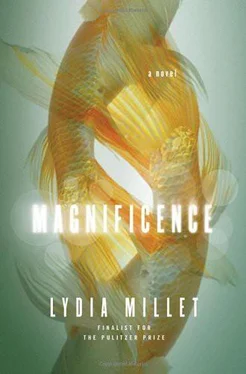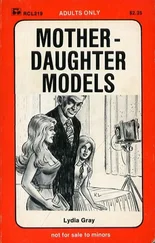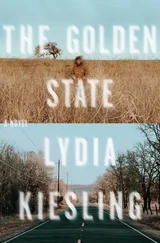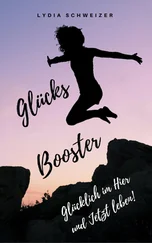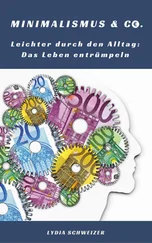Her own items were the bulk of it. She’d kept more than Hal had and the worst was something she’d thought she’d gotten rid of, a book of lists. It was a bound journal from years ago, from a few months after the accident, when she first started sleeping around. Mainly it was a list of men. She’d been incautious then, maybe half hoping Hal would catch her and she would be confronted, but he had never suspected, as far as she knew, and her desire for exposure had slowly waned. The book was a juvenile collection — the names, physical descriptions, the events of their meetings. She barely remembered all of them now, and looking at it felt ashamed by the childishness. It had always been about knowing and being known, about experience and diversity, but here it was clearly teenage games. Now that she was a murderer, now that she had homicide under her belt, it looked to her like evidence.
She crammed it down into the kitchen garbage, then cleaned out the refrigerator and rained down old vegetables on it — rubbery carrots, yellowing celery, a torrent of moldy beets.
She had spent her morning on real estate — showings on the beach, slick modern condos the realtor picked out with wide windows that looked out over the Pacific, balconies that gave a view of the headlands to the north — when the lawyer’s call came. Her great-uncle Albert, who had died a few months back, had named her in his will. She’d barely noticed the death when it happened; she had never known the great-uncle, had met him only once, as a child, when her parents took her over to his house on a weekend. Odd that she remembered it at all; the only reason was his player piano. The piano had stuck with her. He pressed a button and showed her how the white keys moved under the weight of invisible fingers. There was one other fragment too — a thin arm in a plaid shirtsleeve as it bent down and stuck a rusty wire hoop into the grass. That was all she recalled.
She drove to the lawyer’s office in Century City, a tall shining building with valet parking, and sat across from his desk with her right leg vibrating restlessly. The lawyer talked on the phone while she waited. He was a stubby man with a gleaming nose and ruddy cheeks and she wondered idly what he would say if she told him her husband had been stabbed to death. She considered blurting it out. Behind his head was a Chagall print. The décor in the office matched the colors in the print, down to the blue curtains and the flowers on the desk. Chagall had always irritated her. There was an obnoxiousness to the painting, a repugnantly coy quality, like a grown man talking baby talk to other grown men.
“There’s no cash to speak of,” said the lawyer when he hung up, cutting right to the chase and handing her a thick file. “The bulk of the estate is the house itself. The house and the contents. Those are yours. You’re the nearest next of kin, or at least the only one he bothered to name. Himself — as I’m sure you’re aware — he died without issue.”
“A house,” she repeated. The one with the player piano? She would inherit a player piano: a murderer, a black widow, the proud owner of a player piano.
If she suppressed the murder part, the thought gave her a lift of pleasure.
“Where is it, again? The Valley?”
“Pasadena,” he said. “The will, the title, the records he left are in the folder. Review them at your leisure. You may take possession at any time or of course you may also sell. Estate taxes are basically covered for you under the terms of a somewhat complicated trust. All in the file. Feel free to consult your tax preparer.”
She took a minute to shuffle through the file, the documents that were impervious to her scrutiny.
“It’s all there,” said the lawyer, apparently impatient. “Feel free to consult your accountant.”
“It’s such a coincidence,” she said, flustered. “It’s one of those things. Because I’m selling my own home right now.”
The lawyer nodded and took another call.
When she left she felt thrilled. She paid the valet and pulled out onto the street, her accordion folder on the passenger seat, then found a side street and parked to rifle through the papers till she found the address. It was unfamiliar — she barely knew Pasadena — so she dug in the glove compartment for her dog-eared Thomas Guide and flipped through it.
There were keys stashed, the lawyer had said.
•
She did not let her hopes rise as she drove, expended effort to tamp them down. A derelict bungalow that was two-thirds garage, a trailer with fruit stencils decorating the kitchen walls. . thick-walled refrigerators from the fifties strewn across a dry lawn, their rounded edges speckled with rust. With sagging roof and umbrella clotheslines, it would sit hunkered down on cinderblocks on a grim street where the lots were separated by chain-link and pit bulls jumped at you when you passed, backed up to a fast-food chicken joint or a video store or freeway.
But the nearer she got the smoother the pavement beneath her tires, the deeper and older the covering trees. Their shade moved over her car, dappling the windshield. Soaring limbs, velvet green leaves — even the bark looked soft. There were white flowers, opened up at the throat like trumpets, and then she passed a row of tall gates that reminded her of Bel Air. Hedges enclosed mansions.
“No fucking way,” she said, leaning forward and clutching the steering wheel. Hal should have been here. He had always been middle-class and had never had, as she did, rich relatives in the hazy distance, perennially blurred figures. And there was the number from her paper, on a wrought-iron gate. At the top of the gate there was something else written — the name of the estate? She squinted to make it out: a rusty script with flourishes, letters missing, obscured by branches and leaves.
She was out of place here. Even her car, with its fading paint job, seemed like an insult to the street.
The drive was cobblestone and the gate was locked. She reversed and parked on the street to look for the keys. They were under a rock near the gate, the lawyer had said, so she knelt and pulled back branches until she found it, tipped it up and got her fingers dirty. That part felt right: grubbing in the dirt, squatting. She thought: The murderer squatted . She thought along those lines daily. The murderer poured a cup of coffee. The murderer went to sleep. The murderer disassociated.
After a while she realized she had the wrong rock. The fake rock was beside it, hollow. Underneath was a set of keys.
Once she’d pushed one side of the gate open and driven through, the car bumping and shaking over the cobbles, she could peer around at her leisure: a wide lawn with long, leaf-littered grass. There was a fountain off to the left and on her right a pool enclosure. The house, straight ahead, was sprawling and off-white and was surmounted by a green dome, probably oxidized copper. She saw archways over a slate terrace, white metal tables and chairs and parasols with scalloped edges that fluttered. The key stuck at first in the front door, which was intricately carved — some kind of nature scene with odd flat-topped trees — but finally the door opened. No alarm.
Inside it was dim, streaks of light through a window somewhere, and smelled of mothballs. She slid her hand along the wall, feeling for a light switch. Instead it hit something strange — both smooth and furry, bulbous. She snatched her hand away, heartbeat quickened, and tried another wall as her eyes adjusted. She stood in an entryway painted deep red, deer gathered on the walls. Their antlers protruded, their glass eyes stared.
The murderer inherited a house full of deer. My deer, my deer. The universe showed off its symbolic perfection; the atoms bragged.
Читать дальше
